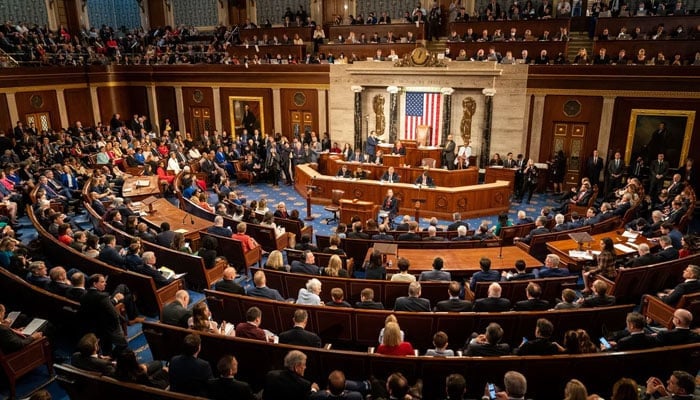| Introduction to USA-Yemen Relations | The United States has had a complex relationship with Yemen, shaped by the ongoing conflict, humanitarian crises, and security concerns. As one of the key global powers, the USA plays an influential role in both the political and humanitarian aspects of the Yemen conflict, as well as in efforts to bring about peace. |
| The US and the Ongoing Yemeni Conflict | Yemen has been embroiled in a civil war since 2014, with various factions vying for control. The conflict has drawn in global powers, including the USA, whose involvement has been marked by military aid, diplomatic engagement, and humanitarian support. |
| Background of the Yemeni Civil War | The civil war in Yemen started in 2014 when the Houthi rebels took control of the capital, Sana’a, forcing the internationally recognized government of President Abd-Rabbu Mansour Hadi into exile. The conflict escalated when a Saudi-led coalition intervened in 2015 to restore Hadi’s government, which has resulted in a devastating humanitarian crisis. |
| The USA’s Involvement in Yemen | The USA’s involvement in Yemen has been primarily focused on supporting the Saudi-led coalition, counterterrorism operations, and providing humanitarian aid. While the US government has officially supported the coalition’s efforts, its direct military involvement has been controversial, especially with regard to airstrikes and civilian casualties. |
| Humanitarian Crisis in Yemen | The Yemeni conflict has caused a catastrophic humanitarian crisis, with millions of civilians facing extreme poverty, malnutrition, and displacement. The USA has been involved in providing aid, but challenges remain in delivering assistance due to the ongoing conflict. |
| Impact of the Conflict on Yemen’s Population | The conflict has led to widespread devastation, with an estimated 233,000 deaths, millions of displaced people, and widespread famine. Yemen is one of the poorest countries in the Arab world, and the war has only exacerbated its economic and social struggles. |
| US Humanitarian Aid to Yemen | The USA has been one of the largest donors of humanitarian aid to Yemen, providing funds for food, health care, and sanitation. Despite this, many aid efforts are hampered by logistical challenges, security threats, and political barriers, making it difficult to reach those in need. |
| US Policy Towards Yemen | US policy towards Yemen has evolved over time, influenced by the changing dynamics of the conflict and shifting priorities in US foreign policy. |
| Shift in US Policy Under Biden Administration | Under President Biden, there has been a shift in US policy towards Yemen. The Biden administration ended support for offensive military operations by the Saudi-led coalition, a move aimed at reducing US involvement in the conflict. The shift also emphasizes diplomacy and humanitarian assistance to help resolve the crisis. |
| Role of the US in Peace Negotiations | The USA has been involved in various diplomatic efforts to bring about peace in Yemen, including working with the United Nations and other international actors to broker ceasefires and negotiations between the warring parties. |
| USA and Saudi Arabia’s Role in Yemen | Saudi Arabia has played a central role in the https://njtoday.us/ conflict, and the USA has historically been a key ally of Saudi Arabia. However, this alliance has faced increasing scrutiny due to human rights concerns and civilian casualties resulting from airstrikes. |
| US Support for Saudi-led Coalition | The USA has provided military support to the Saudi-led coalition in the form of weapons sales, logistical assistance, and intelligence sharing. This support has been controversial, with critics arguing that it has contributed to civilian casualties and prolonged the conflict. |
| Changing Relations and Criticism of Saudi Arabia | The US-Saudi relationship has faced strain under the Biden administration, especially following the murder of journalist Jamal Khashoggi and the humanitarian toll of the Yemen war. The US has called for greater accountability and transparency in Saudi actions, while also continuing to prioritize strategic ties. |
| Terrorism and Security Concerns in Yemen | Yemen is home to several terrorist groups, including Al-Qaeda and ISIS, which have exploited the chaos of the civil war to gain footholds in the country. These groups pose a threat to regional and international security, and the US has focused efforts on counterterrorism operations in the region. |
| Al-Qaeda and ISIS in Yemen | Al-Qaeda in the Arabian Peninsula (AQAP) and ISIS have established strongholds in Yemen, taking advantage of the power vacuum created by the conflict. These groups have targeted both Yemeni security forces and international interests, posing a significant threat to the region. |
| US Counterterrorism Operations in Yemen | The USA has carried out numerous counterterrorism operations in Yemen, including drone strikes aimed at eliminating AQAP and ISIS militants. These operations are part of a broader US strategy to combat terrorism and prevent Yemen from becoming a safe haven for extremist groups. |
| Economic and Trade Relations Between USA and Yemen | Yemen’s economic ties with the USA are limited, due in large part to the ongoing conflict. However, the USA plays an important role as a source of humanitarian aid and as a potential partner in post-conflict reconstruction efforts. |
| Limited Economic Ties | Yemen’s economy is heavily reliant on oil exports, but the ongoing conflict has devastated the country’s infrastructure and economy. The USA has limited economic relations with Yemen, focusing mainly on humanitarian aid rather than direct trade or investment. |
| Impact of Conflict on Trade | The war has severely disrupted trade in Yemen, with blockades and damaged infrastructure hindering the flow of goods. This has led to shortages of basic necessities and significant economic hardships for the population. |
| US Responses to Yemen’s Political Instability | The political instability in Yemen has drawn international attention, with the USA working with other nations to support the country’s government and find a peaceful solution to the crisis. |
| International Diplomacy and Sanctions | The US has imposed sanctions on individuals and groups involved in fueling the conflict, including Houthi leaders and members of the Saudi-led coalition. These sanctions are part of the broader international effort to pressure the warring parties into negotiations. |
| Support for Yemen’s Government | The USA has continued to support Yemen’s internationally recognized government, which has been in exile for much of the conflict. This support has included diplomatic recognition and aid to stabilize the government in the face of Houthi and separatist challenges. |
| The Future of USA-Yemen Relations | The future of US-Yemen relations will largely depend on the resolution of the ongoing conflict and the political stabilization of Yemen. |
| Prospects for Peace and Stability | While peace efforts continue, the road to stability in Yemen is fraught with challenges. The USA’s continued support for peace negotiations, humanitarian aid, and post-conflict reconstruction will be critical in shaping the country’s future. |
| Continued US Involvement in Yemen | The USA is likely to remain involved in Yemen through diplomatic efforts, counterterrorism operations, and humanitarian assistance. The long-term goal is to support the rebuilding of Yemen’s economy and political institutions, promoting stability in the region. |
| Conclusion | The USA’s role in Yemen remains complex and multifaceted, balancing security concerns, humanitarian aid, and diplomatic efforts to end the conflict. As the situation evolves, the USA will continue to be a key actor in efforts to bring peace and stability to Yemen. |

























